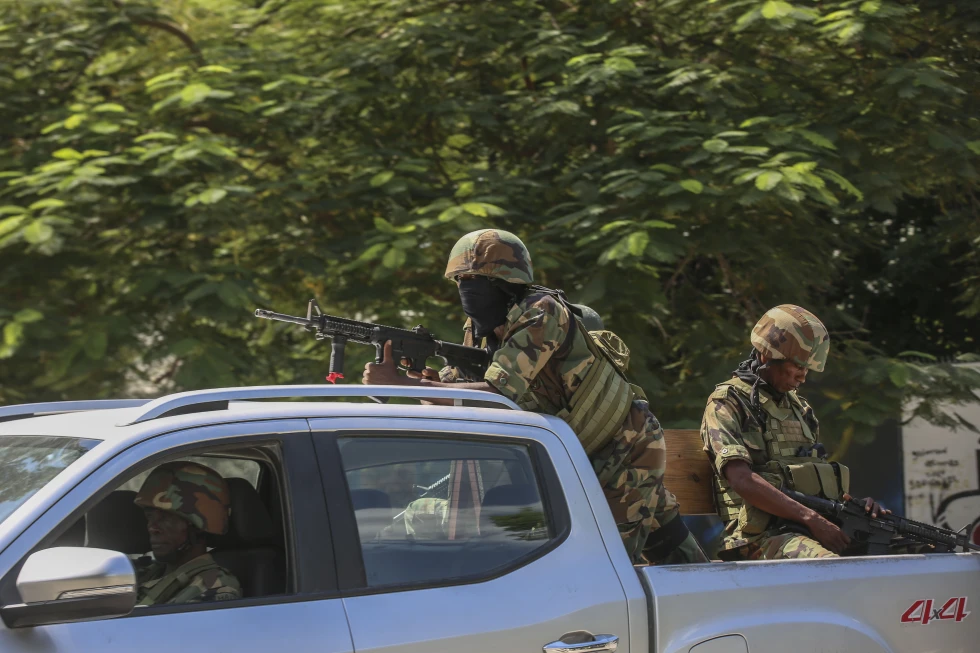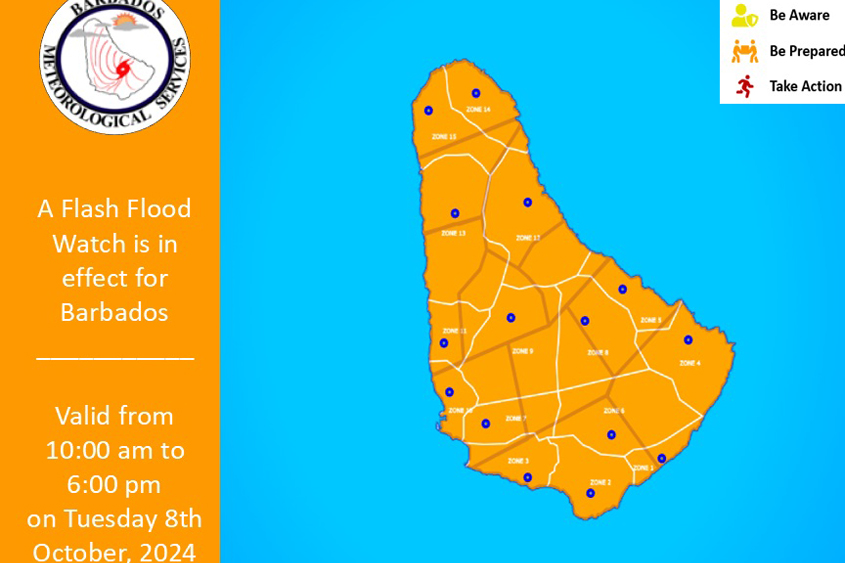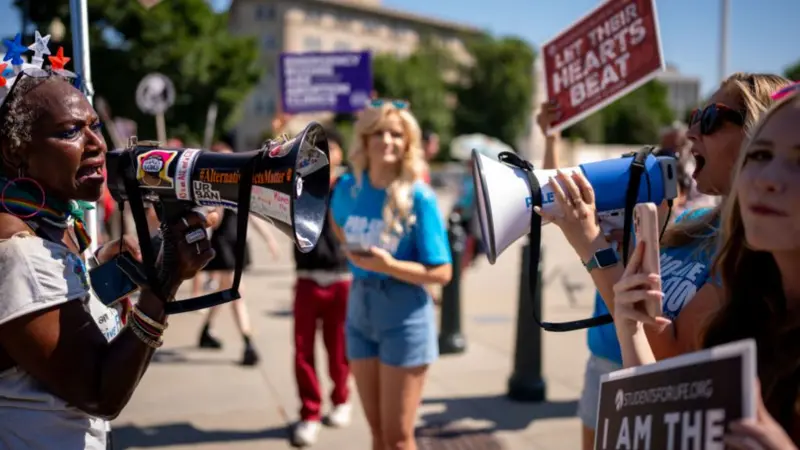Haiti’s Justice Ministry warns of threats against the prime minister and his Cabinet
 23 October 2024
23 October 2024


PORT-AU-PRINCE, Haiti — Haiti’s Justice Ministry called Tuesday for a boost in security for Prime Minister Garry Conille and other Cabinet officials in response to unspecified threats that they could be targeted by malicious parties.
The ministry did not provide details other than to say it had “consistent and persistent” information that the top officials might be targeted by unnamed actors intent on sowing “trouble and panic in the country.” The ministry urged police and judicial authorities to take “appropriate measures” to guarantee the officials’ safety.
Neither judicial authorities nor the office of the prime minister returned messages for comment.
The statement from the Justice Ministry comes as gang violence ramps up in certain neighborhoods of Haiti’s capital that aren’t already under gang control, just months after a U.N.-backed mission led by Kenyan police began. More than 4,000 people have been left homeless in the recent attacks targeting communities in Port-au-Prince including Solino and Tabarre 27.
The escalation in violence began nearly a week ago and is blamed on a gang coalition called “Viv Ansanm,” which was responsible for large-scale attacks that began in February targeting critical government infrastructure. Those attacks led to the eventual resignation of former Prime Minister Ariel Henry.
“Haiti’s politics and violence are deeply interconnected,” said Diego Da Rin, a Haiti analyst with the International Crisis Group, who added that the allegations of threats against the current Haitian leaders were “serious and demand swift action.”
“Times of escalating governance crises have often coincided with a rise in armed group activity,” Da Rin said.
Gang attacks also were reported in the coastal town of Arcahaie, located northwest of Port-au-Prince, and in the central town of Estere, where gunmen opened fire near a school this week, killing at least one parent and injuring a student. Estere is located just north of Pont-Sondé, where a gang killed at least 115 people this month, marking one of Haiti’s biggest massacres in recent history.
The Justice Ministry’s warning has raised concerns especially given that former President Jovenel Moïse was assassinated at his private residence in July 2021, unleashing a period of political turmoil in the country.
Gang leaders accused of orchestrating the recent attacks have threatened journalists covering the violence, calling them out by name as they order them killed. On Tuesday, the Association of Haitian Journalists condemned the threats and called on authorities to protect reporters.
Meanwhile, María Isabel Salvador, the U.N. special envoy for Haiti, told the U.N. Security Council on Tuesday that “the situation in Haiti has regrettably worsened.”
She noted that gang violence has displaced more than 700,000 people in Haiti, with displacements sharply increasing over the past three months.
“The political process, despite initial advances … is now facing significant challenges, turning hope into deep concern. The security situation remains extremely fragile, with renewed peaks of acute violence,” she said.
In an interview Monday with Magik9 radio station, Justice Minister Carlos Hercule blamed unspecified “forces of darkness” that operated in Haiti 20 years ago for fueling the current gang violence.
“We have information,” he said, without providing details. “At every moment of calm, they have formed a coalition with ex-convicts, delinquents who enjoy carrying illegal firearms,” Hercule said.
The U.S. government and others have warned that the U.N.-backed mission trying to quell gang violence is lacking funds and personnel, with the U.S. proposing it become a U.N. peacekeeping mission, a call backed by the former leader of Haiti’s transitional presidential council.
On Monday, the top U.S. diplomat for Latin America and the Caribbean condemned the ongoing gang violence.
“Individuals who aim to destabilize Haiti for personal gain should be more concerned for Haiti and its people,” Brian A. Nichols, the U.S. Department of State’s assistant secretary for western hemisphere affairs, wrote on X.
He also warned it was not the time for political infighting, a reference to recent spats between Conille and some of the nine members who make up the transitional presidential council. (AP)




